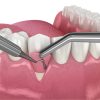Auditory Processing Disorder (APD) is a disorder that affects the way people process sounds. This can make it very difficult for sufferers to understand what they hear or concentrate on what they are doing. It is actually a neurobiological disorder of central auditory processing. This condition affects how sounds are processed, for example, their pitch, volume, timbre, and location within space.
Many people with APD also have difficulties in other areas, like social or emotional issues. The good news is that there are many resources out there to help those affected by auditory processing problems, including these related disorders of central auditory processing or central auditory integration. You can get a dépistage auditif Audiologie Centre-Ouest to get a better picture of your APD condition.
Common Causes of APD
- Other medical conditions
Some medical conditions can cause APD. Some of the more common ones that can cause APD are neurofibromatosis, hydrocephalus, brain tumors, and other childhood diseases. APD is also sometimes caused by head injuries or brain surgery. You can consult a specialist to get a more precise answer about your case.
- Premature birth or low weight
Premature birth or low birth weight can cause many deficits in a child’s brain. A person may be more likely to develop APD if he or she is born prematurely or if he or she is born with a low birth weight, which means less than 5 pounds.
- Head injury
Even a mild head trauma can result in APD. In some cases, APD is caused by chronic exposure to loud sounds. It can also occur with exposure to extremely loud noises or explosions. Brain tumors can cause temporary APD, especially if they are in the temporal lobe of the brain, which controls sound and language processing.
There could be a physical cause for APD, like a brain injury. One of the most common types of brain trauma is caused by a stroke, which is an interruption in the normal blood supply to the brain. A stroke can cause damage to the auditory system and delayed speech development.
- Genes
There is no evidence that APD is hereditary, but some genes have been associated with its development. Researchers know that the genes involved in APD are either of the auditory system itself or of linked systems, like the executive function. APD may run in families.






